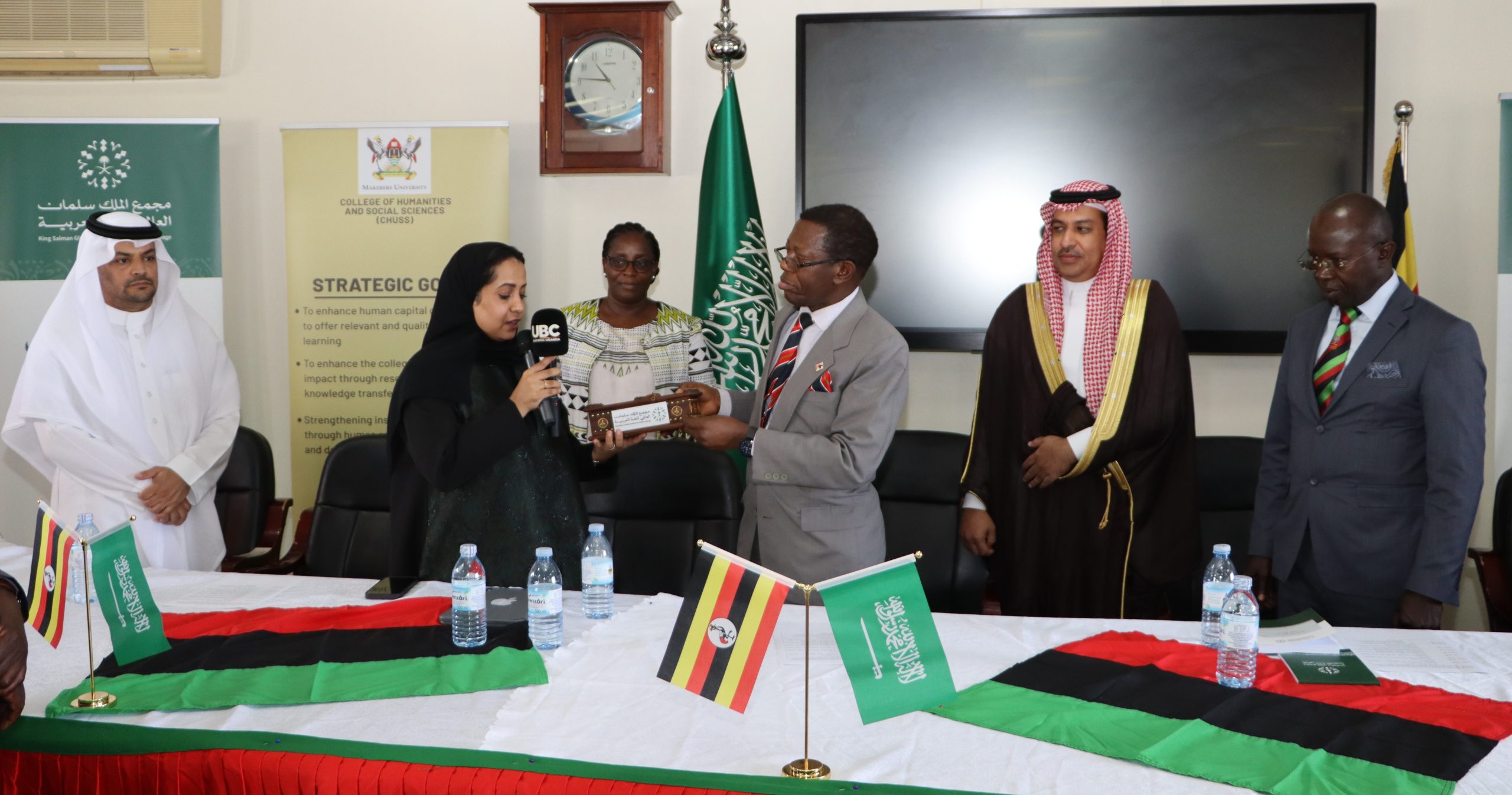Kampala, Uganda – June 16, 2025 – The Ambassador of the Royal Kingdom of Saudi Arabia to Uganda, H.E. Mohammad bin Khalil Faloudah, officially launched a four-day Arabic language training workshop at Makerere University, calling the initiative a vital step in strengthening global cultural and economic ties through language.
Speaking at the event held at the university’s Senate Conference Hall, Ambassador Faloudah described the Arabic language as a bridge to opportunity and international cooperation, emphasizing its broad global relevance and its role beyond religious contexts.

“Arabic is spoken by more than 400 million people and is one of the official languages of the United Nations and the Organisation of Islamic Cooperation,” he noted. “Its use spans dozens of countries where it serves not just as a cultural identity but also as a key to trade, diplomacy, and knowledge.”
The workshop was organized by the King Salman Global Academy for the Arabic Language (KSAA) in partnership with Makerere University’s School of Languages, Literature and Communication, under the College of Humanities and Social Sciences (CHUSS). It brought together Arabic language experts from Saudi Arabia and educators and secondary school students from across Uganda for intensive capacity building.
Ambassador Faloudah encouraged participants to fully engage with the training, stating that proficiency in Arabic can provide a competitive edge in both academic and professional fields.
“Language opens doors—to jobs, to markets, and to education,” he said. “Those who learn Arabic gain an edge over their peers in a world that increasingly values multilingualism and cross-cultural literacy.”
He also stressed that Arabic, while integral to Islamic practice, should not be seen solely through a religious lens.
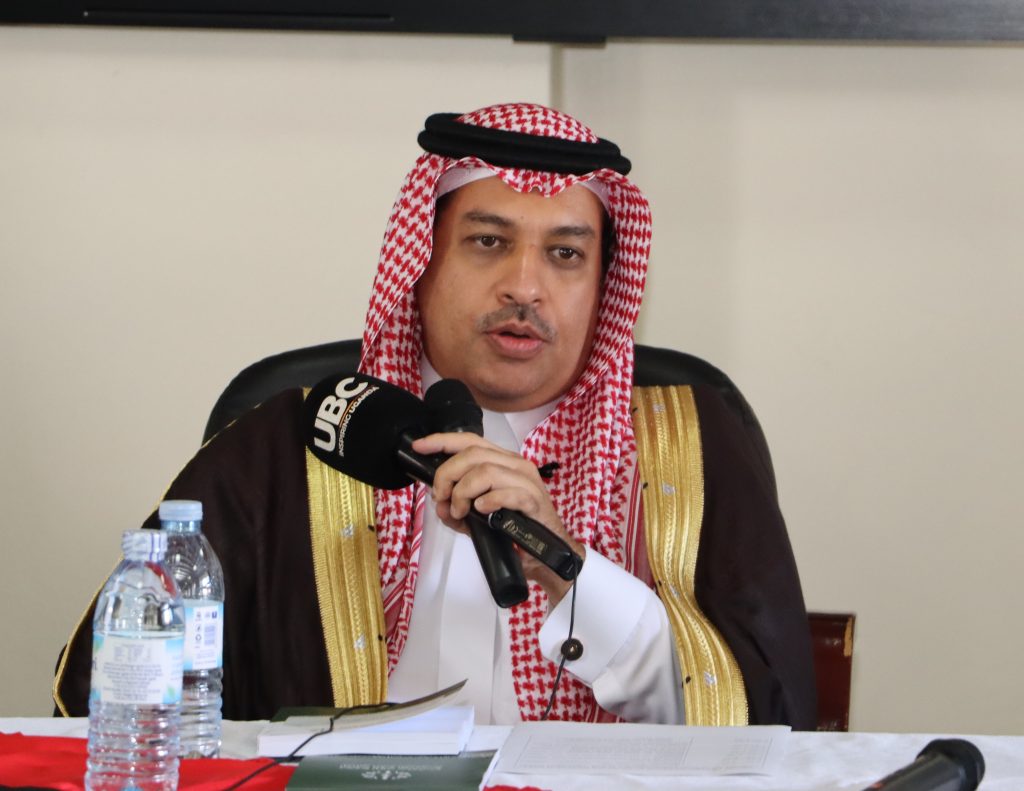
“Arabic is not limited by region or religion. It is a global language—used in diplomacy, media, business, and education,” he said.
The Ambassador concluded his remarks with a message of gratitude to Makerere University for hosting the workshop and reiterated Saudi Arabia’s commitment to supporting Arabic language education in Uganda and across the region.
“We are honored to collaborate with institutions like Makerere University in spreading the richness of the Arabic language and its potential to connect people and cultures,” he said.
Arabic Training Workshop Marks New Chapter in Uganda-Saudi Academic Collaboration – Prof. Mukadasi Buyinza
Speaking on behalf of Makerere University’s Vice Chancellor, Prof. Mukadasi Buyinza, the Academic Registrar and Acting Deputy Vice Chancellor for Academic Affairs, underscored the significance of the newly launched Arabic language training workshop as a pivotal step in strengthening academic and cultural cooperation between Uganda and the Kingdom of Saudi Arabia.
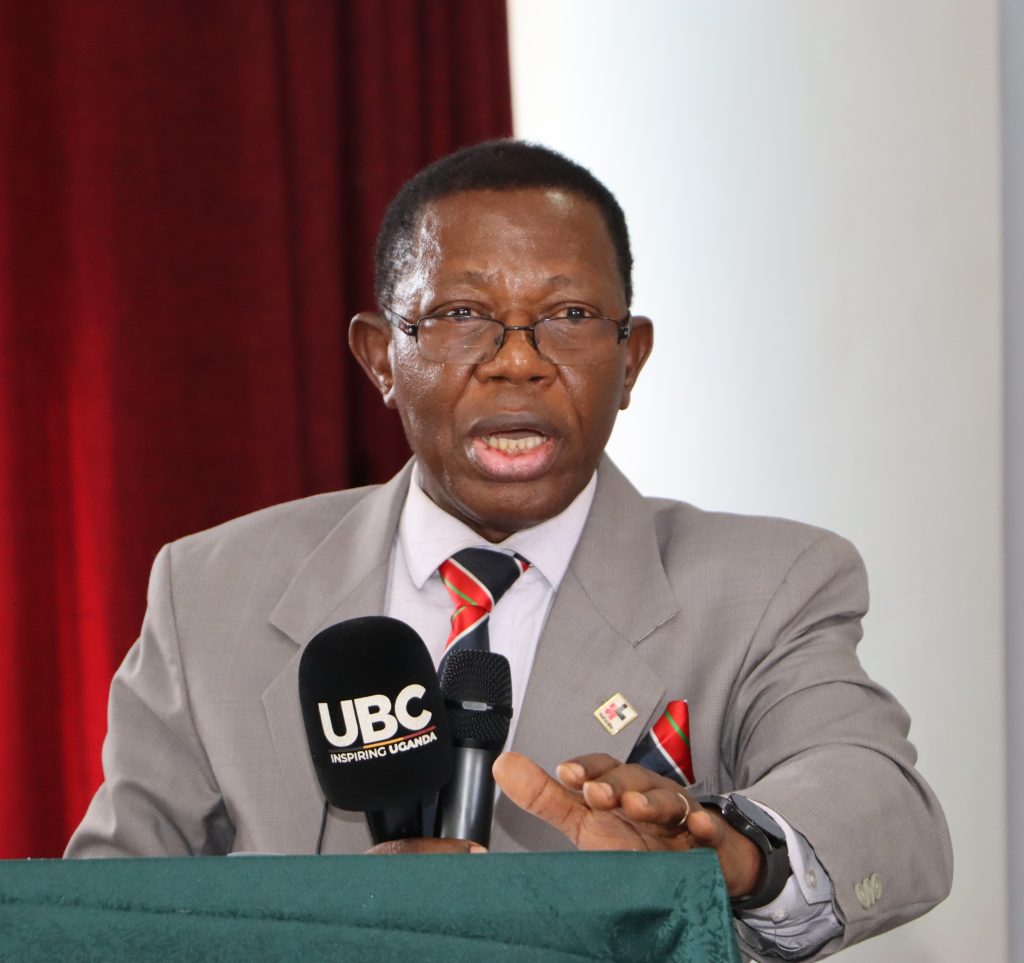
“Your presence here today is a testament to the deep and growing friendship between our two nations, particularly in education, language development, and cultural exchange,” Prof. Buyinza said.
He reflected on the history of collaboration between Makerere University and Saudi Arabia, recalling a major engagement in 2015 that culminated in the attendance of a Saudi delegation at Makerere’s graduation ceremony in 2020. However, he noted that the COVID-19 pandemic had stalled plans to establish a dedicated Arabic Language Center at the university.
“We had laid the groundwork for an Arabic language center, but the pandemic halted progress. Today’s workshop signals a renewed commitment and the possibility of reigniting those plans,” he said.
Prof. Buyinza expressed personal enthusiasm for the Arabic language, calling it more than just a tool of communication.
“Language is the vessel of culture, history, and identity. Establishing an Arabic Language Center here would carry deep intellectual, spiritual, and cultural significance,” he said, adding that such a center would help position Uganda more prominently on the global stage.
He emphasized the increasing demand for Arabic language skills in Uganda and across Africa, driven by trade, education, and diplomatic needs, and noted that the timing of the workshop could not be more critical.
“Interest in Arabic is growing across the continent, and we urgently need more qualified and well-equipped Arabic language teachers to meet this demand,” he noted.
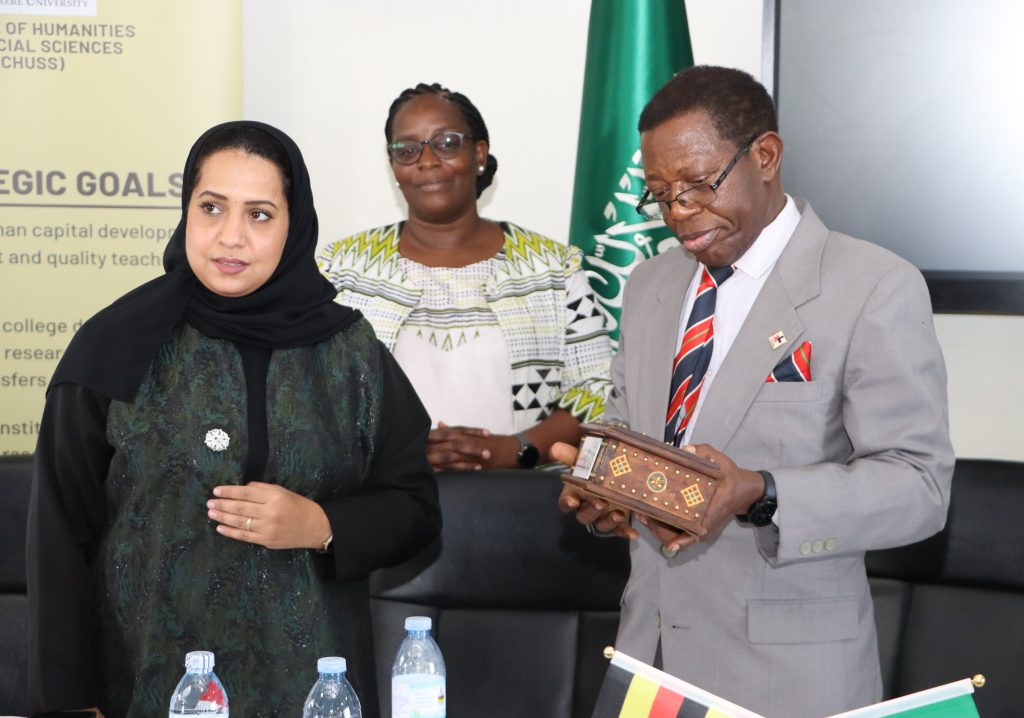
Looking ahead, Prof. Buyinza called for strengthened cooperation that would go beyond short-term training, suggesting long-term academic exchanges, faculty collaborations, and curriculum development in both Arabic language and Islamic studies.
“We envision a future where this partnership supports not just learning, but research, innovation, and intercultural understanding,” he said.
He also applauded the Department of European and Oriental Languages and the School of Languages, Literature and Communication for their dedication to making the program a success.
“This is the beginning of something much bigger. Makerere University is proud to be part of this historical engagement,” he concluded.
Arabic Workshop Rekindles Longstanding Ties, Symbolizes a New Academic Chapter- Prof. Helen Nkabala
The Principal of the College of Humanities and Social Sciences (CHUSS) at Makerere University, Prof. Hellen Nambalirwa Nkabala, has hailed the Arabic Language Training Workshop as a significant renewal of academic and cultural ties between Uganda and the Kingdom of Saudi Arabia.
Prof. Nkabala warmly welcomed the delegation from the King Salman Global Academy for the Arabic Language (KSAA) and praised the Saudi Ambassador to Uganda, H.E. Mohammad bin Khalil Faloudah, for his humility, openness, and unwavering support for Arabic language education.
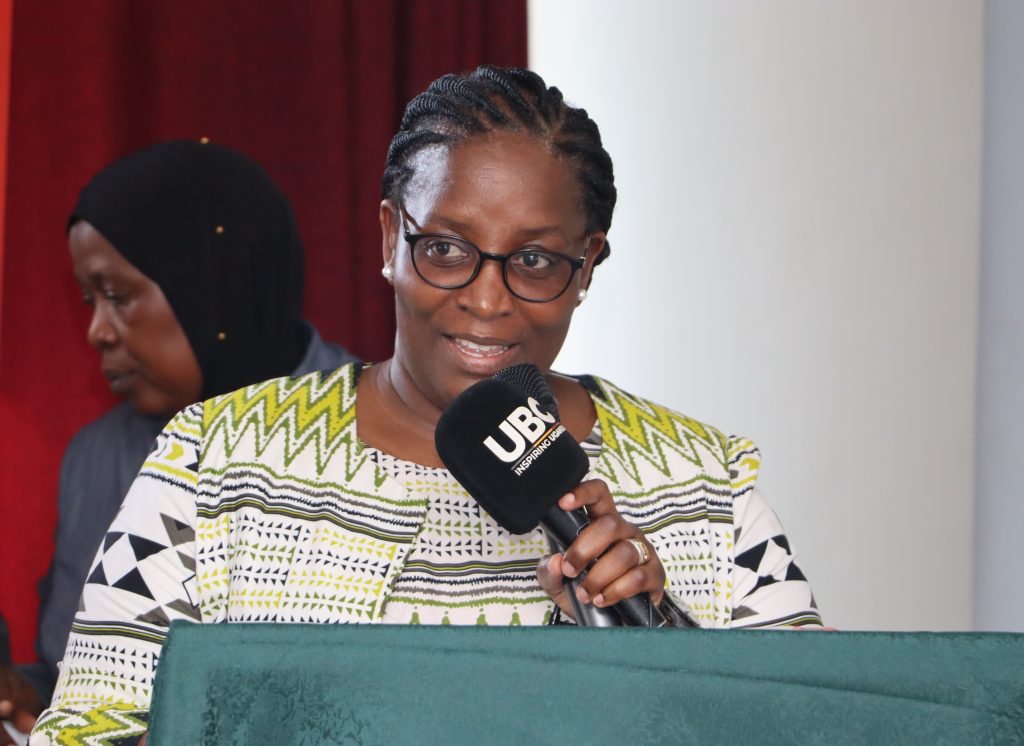
“Great things often begin with simple conversations,” Prof. Nkabala said, recalling a modest initial discussion with the Ambassador that later blossomed into this landmark initiative. “Your Excellency, you have truly opened doors for us.”
Prof. Nkabala, known for her deep background in religion and peace studies, emphasized the spirit of cultural exchange and collaboration that the workshop represents.
“This training is not just about language—it is a rekindling of a longstanding relationship,” she said. “These visiting experts may return home physically, but their impact will remain with us intellectually and emotionally.”
She expressed deep appreciation for the visiting instructors from Saudi Arabia, calling them “dear colleagues” and emphasizing that CHUSS considers them part of its academic family.
“At CHUSS, we never say goodbye. You are now part of our story, part of our heritage,” she declared.
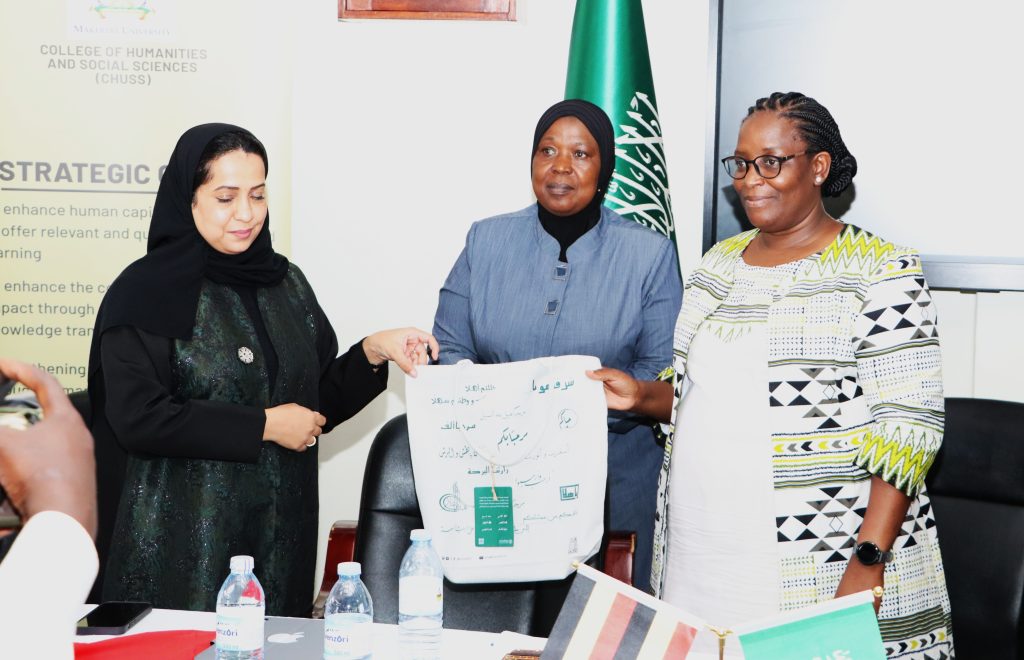
Prof. Nkabala also acknowledged the behind-the-scenes work that made the workshop possible, paying special tribute to Prof. Saudah Namyalo, the Dean of the School of Languages, Literature and Communication, for her leadership and tireless coordination.
“To those who worked tirelessly—what I call the ‘Team No Sleep’—thank you for making this dream a reality,” she said with emotion. “It would not have been possible without your selfless dedication.”
She applauded the efforts of other key academic staff including department heads and coordinators, highlighting the collaborative spirit at Makerere University that makes such programs possible.
“Our duty is to extend knowledge as far as possible. At Makerere, that is what we do best—sharing knowledge beyond borders.”
In a personal and heartfelt message to the participants, Prof. Nkabala encouraged them to take full advantage of the opportunity to learn, network, and grow.
“You are not just attending a training. You are making history. You are now part of the story of Makerere and the Arabic language in Uganda,” she said.
Makerere Workshop Marks a Milestone in Global Arabic Language Promotion – Dr. Almalik
Dr. Almalik Hanan Salem, Head of the King Salman Global Academy for the Arabic Language (KSAA reaffirmed the Academy’s global commitment to promoting Arabic language education, describing the Makerere University workshop as a proud continuation of a mission guided by the Custodians of the Two Holy Mosques.
Dr. Almalik highlighted the far-reaching impact of KSAA’s programs, which have already delivered over 100 training sessions across more than 40 countries.
“This workshop is one of many steps we are taking globally to promote the Arabic language,” Dr. Almalik said. “It represents our deep commitment to linguistic excellence, international cooperation, and human connection.”
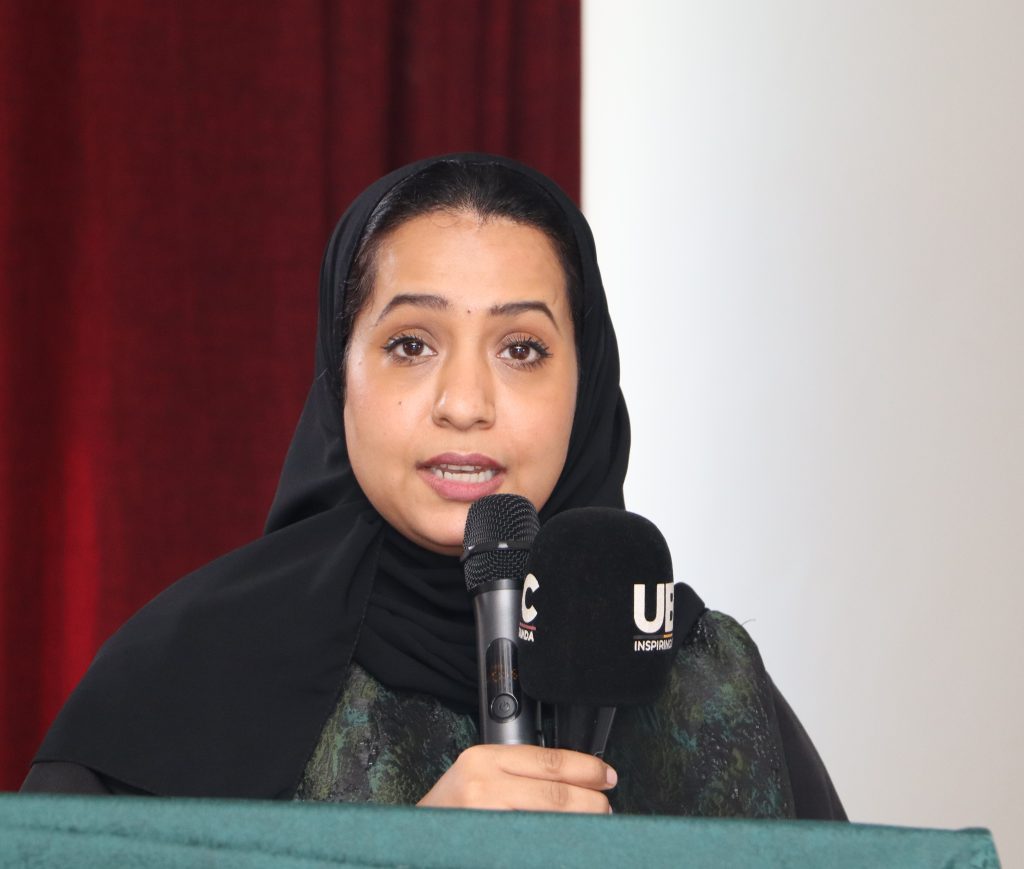
Dr. Almalik noted that the workshop—organized in partnership with Makerere’s School of Languages, Literature and Communication under the College of Humanities and Social Sciences—will benefit not just Arabic teachers and students in Uganda, but all individuals and institutions striving to advance Arabic language proficiency and understanding.
She emphasized the Academy’s broader mandate of Arabicization, training, and research in language instruction, while underscoring that such efforts are not only about education but about building bridges of communication among humanity.
“By enhancing communication through Arabic, we strengthen cultural ties and global understanding,” she said. “We are proud to collaborate with institutions like Makerere University in this shared vision.”
Dr. Almalik expressed deep gratitude to Makerere University for its hospitality and long-standing interest in Arabic language education. She extended thanks to the university’s leadership, the Saudi Ambassador to Uganda H.E. Mohammad bin Khalil Faloudah, and all stakeholders who contributed to the planning and delivery of the workshop.
“This program is a product of dedicated efforts from both sides,” she said. “We also thank the participants for their enthusiasm. We trust that the training will meet your expectations and equip you with tools to further Arabic education in your institutions.”
Arabic Language Education at Makerere on the Rise Amid New Partnerships- Prof. Saudah Namyalo
The Dean of the School of Languages, Literature and Communication at Makerere University, Professor Saudah Namyalo, hailed the deepening of Arabic language education in Uganda, crediting decades of groundwork and new global partnerships for the momentum seen today.
Prof. Namyalo expressed gratitude for the collaboration and excitement about the future of Arabic studies at the university.
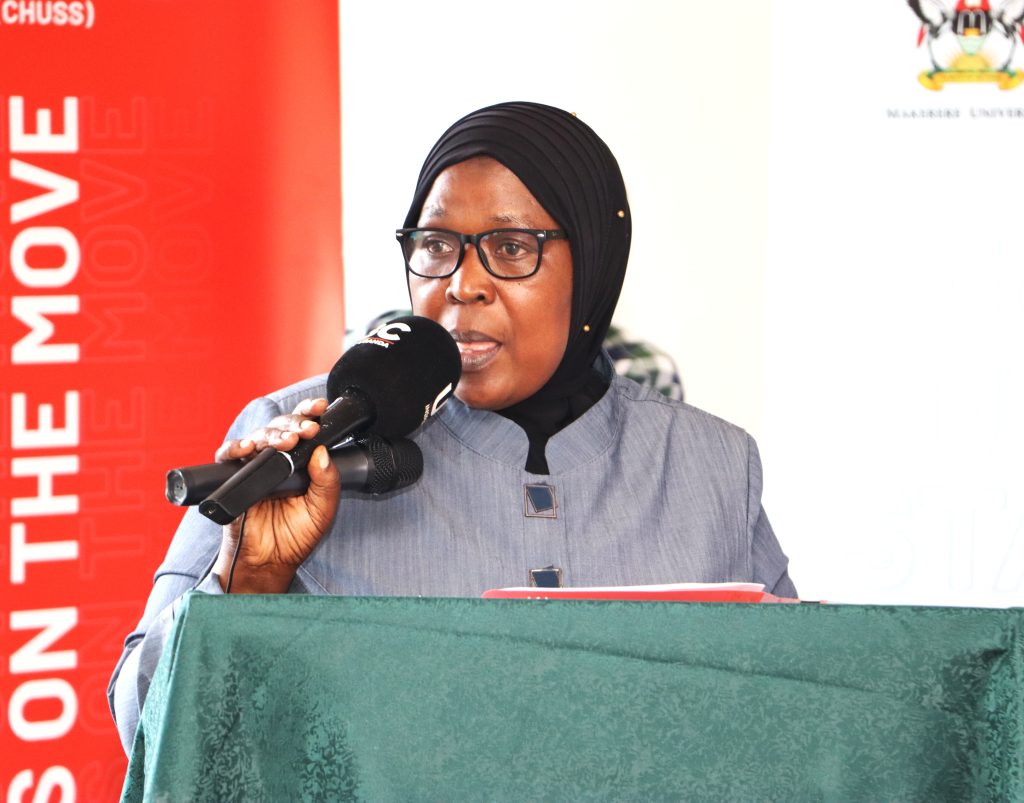
“Arabic has been part of our curriculum since the 1980s, and we are proud that it continues to thrive alongside other major world languages like Chinese, French, German, and now Russian,” Prof. Namyalo said. “This workshop is a clear signal of the international commitment to expand Arabic language instruction.”
She recognized the foundational work of pioneering scholars like Dr. Ibrahim Sali and paid heartfelt tribute to Dr. Abdullah Al Hassan, a foundational figure in Arabic language education at Makerere, whose mother passed away just days before the workshop.
Arabic is currently offered at undergraduate level, with students able to combine it with a variety of other disciplines such as communication, Islamic studies, African languages, and religious studies. Additionally, Arabic is taught in the School of Education, where educators are trained to meet growing national and regional demand.
“We are excited that the demand for Arabic is growing across Uganda, not just among Muslims, but also Christians and people of various faiths,” she added. “This proves that Arabic is being recognized for its broader cultural, professional, and economic value.”
Prof. Namyalo also noted the university’s plans to expand Arabic language offerings, including a Master’s degree and a diploma program in Arabic. She called on the King Salman Global Academy to support this academic vision by sharing expertise, resources, and faculty exchange opportunities.
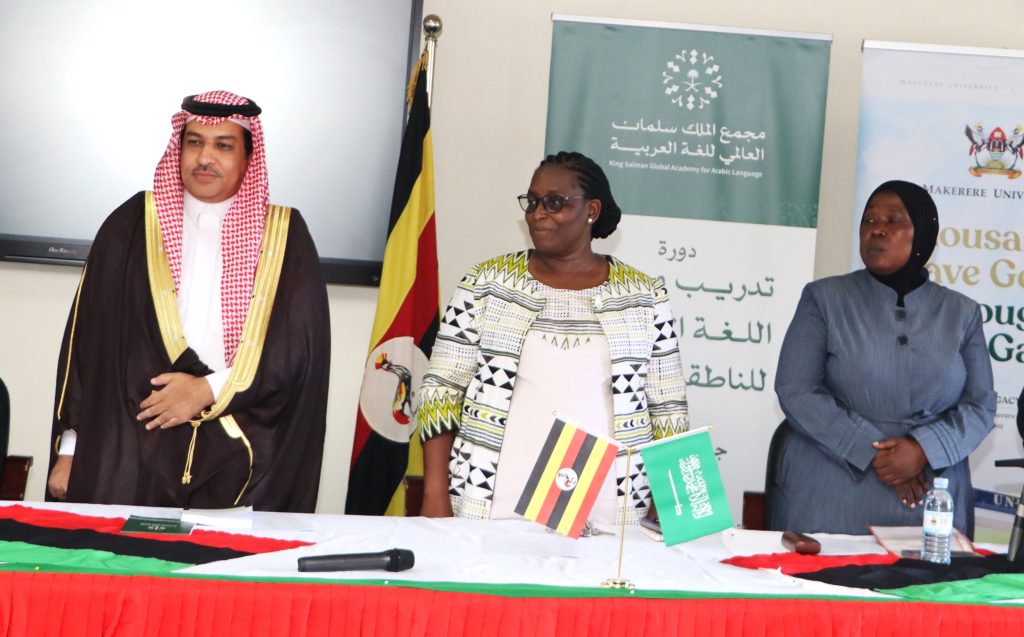
“As we move toward becoming a research-led university, strategic partnerships like this one are essential,” she said. “We want to learn from your professors and curriculum developers to enrich our own programs.”
The Dean concluded by urging all participants to make the most of the training, highlighting the importance of returning to their institutions equipped with new methodologies and renewed commitment to elevate Arabic education in Uganda and the region.
“Let this workshop be a turning point. Let it uplift Arabic from where it is now to where it deserves to be – a language of opportunity, unity, and global relevance,” she said.
The training, which brings together Arabic language educators, secondary school teachers, and scholars from Uganda and Saudi Arabia, is part of a broader initiative to bolster Arabic language proficiency across Africa, driven by KSAA and supported by the Royal Kingdom of Saudi Arabia.

